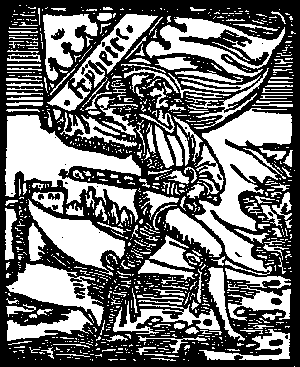
Works of Frederick Engels
The Peasant War in Germany
Written: Summer 1850, London;
Published: Neue Rheinische Zeitung. Revue;
Translated: by Moissaye J. Olgin in 1926 for International Publishers;
Transcribed: by director@marx.org, July 1995, online Jan 4 1996;
HTML Mark-up: revised January 2002.
The 1848 uprisings in Germany put Engels in mind of the last great peasant rebellions of the 1500s. As he would later write:
"The parallel between the German Revolution of 1525 and that of 1848-49 was too obvious to be altogether ignored at that time."
Engels demonstrates the failure of both these revolutions was largely attributable to the bourgeois/burgerdom (and thus underscoring the modern need for an alliance between the working proletariat and the working peasantry).
The Peasant War in Germany was the first history book to assert that the real motivating force behind the Reformation and 16th-century peasant war was socio-economic (class conflict) rather than "merely" religious.
Table of Contents
Author's Preface: Second Edition (1870)
Author's Preface: Addendum (1874)
PART 1: The Economic Situation and Classes in Germany
PART 2: The Main Opposition Groups and their Programmes; Luther and Muenzer
PART 3: Precursors: Peasant Uprisings, 1476-1517
PART 4: Uprising of the Nobility
PART 5: The Peasant War in Suabia and Franconia
PART 6: The Peasant War in Thuringia, Alsace and Austria
PART 7: Significance of the Peasant War
“The worst thing that can befall a leader of an extreme party is to be compelled to take over a government in an epoch when the movement is not yet ripe for the domination of the class which he represents and for the realisation of the measures which that domination would imply. What he can do depends not upon his will but upon the sharpness of the clash of interests between the various classes, and upon the degree of development of the material means of existence, the relations of production and means of communication upon which the clash of interests of the classes is based every time. What he ought to do, what his party demands of him, again depends not upon him, or upon the degree of development of the class struggle and its conditions. ....” [Chapter 6]
The Twelve Articles of the Peasant
Comments by D. Riazanov (1925)
Photo of opening pages from 1870 edition